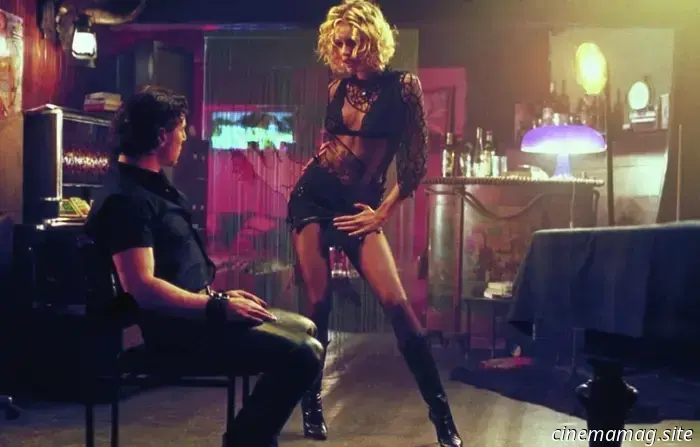
Could poor acting be the issue with your film?
As the editor of MovieMaker, I'm tasked with viewing numerous low-budget, DIY independent films and frequently hear indie filmmakers lament about the lack of press coverage, film festival inclusions, or theatrical releases. They complain that the industry undervalues creativity, the distribution model is flawed, and corporations are detrimental to the art. Perhaps there is some truth to these claims.
However, what stands out most in films that fail to gain traction is simply... poor acting. That's it. Bad acting—which often stems from the screenwriter, director, or a producer insisting on casting a family member—can be a dealbreaker. It disrupts the audience's suspension of disbelief and suggests to me that I'm dealing with a filmmaker who doesn't value my time. Consequently, I disengage.
Is it really this straightforward? Oftentimes, yes. I engage with many festival programmers and occasionally judge film festivals. We all share the same goal: not to act as gatekeepers, but to assist filmmakers in passing through the gate. We wish for every movie to be amazing, particularly those created on a shoestring budget by unfamiliar talents. These films, when successful, feel like delightful miracles.
Yet it’s never as simple as just allowing someone through. Filmmakers seek various things from us. Distributors desire funds and audience access. Festivals covet prestigious slots that are sought after by other filmmakers as well. For me, as a writer-editor, it entails dedicating a few hours of my life to watch a film, investigate it, write a story, and ensure that story gains an audience.
We are always alert to avoidable mistakes that indicate a film does not honor the audience's time. The most easily identifiable of these mistakes is poor acting.
We recognize that certain aspects come with a hefty price tag: exceptional sound, breathtaking locations, impressive VFX. Thus, we tend to be forgiving. I recall one festival film that creatively suggested the arrival of police with offscreen blue-and-red lights, as there was no budget for an actual police car; it ended up winning an award at the festival.
However, delivering a line in a compelling manner doesn't cost any more than delivering it in a clichéd fashion.
Every audience member is familiar with genuine and artificial speech. If you present a character who sounds insincere, we will grow resentful of your film.
Of course, we acknowledge that acting is challenging. You might not always have the luxury of multiple takes, or the actor may misinterpret a line, or the quality of sound may falter on the best take. That’s unfortunate.
Once the audience's suspension of disbelief is broken, you've lost them. We move on to the next film.
Bad Acting versus Good Acting
To clarify this point: much of what we label as bad acting is, in fact, poor screenwriting. A weak script requires actors to convey dialogue that no real person would authentically say.
Yet, a great actor has the ability to make even clumsy expository dialogue (“The old cabin? We haven’t been up there since mom died!”) sound plausible or even appealing. This distinction is what separates good actors from bad ones.
Exceptional actors manage to navigate the deficiencies in the script to directly connect with the audience, almost acting as a meta mediator—they keep the story flowing, introduce elements not present in the text, and enhance a line beyond its original intent. They don’t merely recite the words; they offer a perspective that adds depth to the narrative.
While watching Mission: Impossible — The Final Reckoning, I was particularly impressed by Tramell Tillman’s delivery, known for his performance as Seth Milchick in Apple TV+’s Severance. In The Final Reckoning, he portrays a military character—perhaps a submarine captain?—who is burdened with an overwhelming amount of expository dialogue outlining the challenges facing Ethan Hunt (Tom Cruise).
I can’t recall Tillman delivering a single standout line. Yet his performance was utterly captivating due to the way he chose to present his unremarkable dialogue. One might anticipate a submarine captain in a crisis to be commanding and vocal, but instead, Tillman adopts a subdued approach. His tone remains measured, calm, and almost gentle, reminiscent of ASMR. Tillman made a significant choice to play it small.
Despite knowing very little about his character—where he hails from, what drives him—Tillman conveys an abundance with his delivery. His captain has conditioned himself to maintain extraordinary composure due to past experiences and understands the gravity of his role.
He possesses the ability to remain so level-headed because he processes information rapidly, refraining from succumbing to panic or shock. Perhaps through trial and error, he has discovered that leading a submarine filled with nuclear weapons requires a gentle tone to yield the best results from his team.
The Final Reckoning is saturated with exposition, yet the film succeeds because it features talented actors capable of delivering engaging performances from lines that offer limited scope.
Some may argue
Other articles
 The US trailer and a clip for the Emmanuelle remake have been released.
Decal Releasing has unveiled a poster, trailer, and clip for the US release of Emmanuelle, a contemporary adaptation of Emmanuelle Arsan’s novel directed by Audrey Diwan. The erotic drama features Noémie Merlant in the lead role, portraying a woman who seeks to rediscover lost pleasure through passionate experiences during a business trip to Hong Kong. [...]
The US trailer and a clip for the Emmanuelle remake have been released.
Decal Releasing has unveiled a poster, trailer, and clip for the US release of Emmanuelle, a contemporary adaptation of Emmanuelle Arsan’s novel directed by Audrey Diwan. The erotic drama features Noémie Merlant in the lead role, portraying a woman who seeks to rediscover lost pleasure through passionate experiences during a business trip to Hong Kong. [...]
 Pete Davidson appears in a nightmarish setting in The Home trailer.
Roadside Attractions and Lionsgate have unveiled The Home by releasing a trailer for their horror film featuring Pete Davidson. In this movie, the former comedian plays a man who is assigned community service at a care home, only to discover that some of the residents are confined for justifiable reasons. Directed by James […]
Pete Davidson appears in a nightmarish setting in The Home trailer.
Roadside Attractions and Lionsgate have unveiled The Home by releasing a trailer for their horror film featuring Pete Davidson. In this movie, the former comedian plays a man who is assigned community service at a care home, only to discover that some of the residents are confined for justifiable reasons. Directed by James […]
 The Wes Anderson Method: Insights from the Phoenician Scheme Director and His Team on Budget and Schedule
Director Wes Anderson and his dedicated cast and crew from the Phoenician Scheme have developed a distinctive approach to filmmaking.
The Wes Anderson Method: Insights from the Phoenician Scheme Director and His Team on Budget and Schedule
Director Wes Anderson and his dedicated cast and crew from the Phoenician Scheme have developed a distinctive approach to filmmaking.
 Teaser for the Prime Video action series Countdown featuring Jensen Ackles.
In anticipation of its premiere on Prime Video next month, the streaming service has unveiled a trailer for the forthcoming action series Countdown. Featuring Jensen Ackles, Eric Dane, Jessica Camacho, Violett Beane, Elliot Knight, and Uli Latukefu, the series centers on an LAPD detective who is enlisted by a covert task force to probe a murder...
Teaser for the Prime Video action series Countdown featuring Jensen Ackles.
In anticipation of its premiere on Prime Video next month, the streaming service has unveiled a trailer for the forthcoming action series Countdown. Featuring Jensen Ackles, Eric Dane, Jessica Camacho, Violett Beane, Elliot Knight, and Uli Latukefu, the series centers on an LAPD detective who is enlisted by a covert task force to probe a murder...
 10 Remarkable Overlooked Erotic Thrillers You Must Watch
10 Remarkable Overlooked Erotic Thrillers You Must Watch
 The latest update for Death Note Killer Within brings a new role.
Bandai Namco Entertainment has launched a fresh free update for DEATH NOTE Killer Within, which brings a new role to Kira's team. Additionally, new Premium DLC has been introduced for players seeking some diversity in their teams. You can watch a new trailer below that highlights these additions. The [...]
The latest update for Death Note Killer Within brings a new role.
Bandai Namco Entertainment has launched a fresh free update for DEATH NOTE Killer Within, which brings a new role to Kira's team. Additionally, new Premium DLC has been introduced for players seeking some diversity in their teams. You can watch a new trailer below that highlights these additions. The [...]
Could poor acting be the issue with your film?
Poor acting is frequently the reason your film fails to achieve your desired outcome. It's not market dynamics or a manipulated system, but rather subpar performances.
